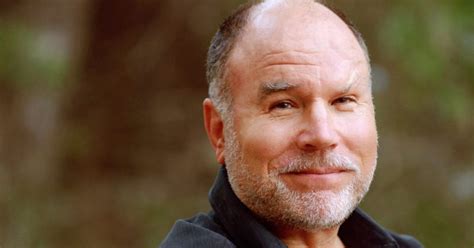A Quote by Elisabeth Elliot
The world is full of noise. Might we not set ourselves to learn silence, stillness solitude?
Related Quotes
There is an old proverb to the effect that 'all those who open their mouths, close their eyes!' The purpose of silence and solitude is to be able to see and hear. Control rather than no noise is the key to silence. James saw clearly that the person who could control his tounge is perfect (James 3:1-12). Under the Discipline of silence and solitude we learn when to speak and when to refrain from speaking.
For twenty-five centuries, Western knowledge has tried to look upon the world. It has failed to understand that the world is not for the beholding. It is for hearing. It is not legible, but audible. Our science has always desired to monitor, measure, abstract, and castrate meaning, forgetting that life is full of noise and that death alone is silent: work noise, noise of man, and noise of beast. Noise bought, sold, or prohibited. Nothing essential happens in the absence of noise.
We have to make the first move ourselves rather than expecting it to come from the phenomenal world or from other people. If we are meditating at home and we happen to live in the middle of the High Street, we cannot stop the traffic just because we want peace and quiet. But we can stop ourselves, we can accept the noise. The noise also contains silence. We must put ourselves into it and expect nothing from outside, just as Buddha did. And we must accept whatever situation arises.
In silence, we have an opportunity to reflect, listen, and gain new insights about ourselves. In silence, we can think, feel, and most important of all, breathe. When you seek guidance, understanding, clarity, or peace of mind, the first step is to master the art of silence and to rethink the value of solitude.
Let us leave a little room for reflection in our lives, room too for silence. Let us look within ourselves and see whether there is some delightful hidden place inside where we can be free of noise and argument. Let us hear the Word of God in stillness and perhaps we will then come to understand it.
Meditate or spend silent time in nature with your partner. When going for a walk or sitting in the car or at home, become comfortable with being in stillness together. Stillness cannot and need not be created. Just be receptive to the stillness that is already there, but is usually obscured by mental noise.
We need to remember to teach our children that solitude can be a much-to-be-desired condition. Not only is it acceptable to be alone; at times it is positively to be wished for.....In the silence we listen to ourselves. Then we ask questions of ourselves. We describe ourselves to ourselves, and in the quietude we may even hear the voice of God.
Words stand between silence and silence: between the silence of things and the silence of our own being. Between the silence of the world and the silence of God. When we have really met and known the world in silence, words do not separate us from the world nor from other men, nor from God, nor from ourselves because we no longer trust entirely in language to contain reality.
































